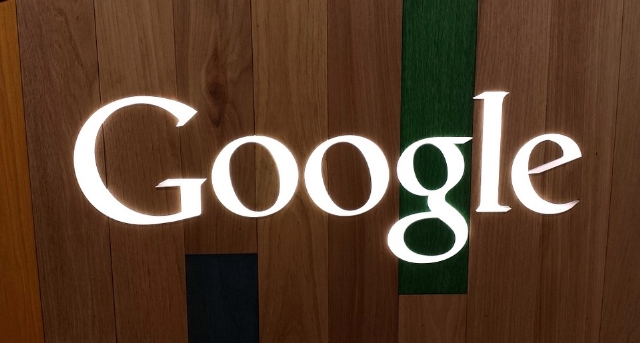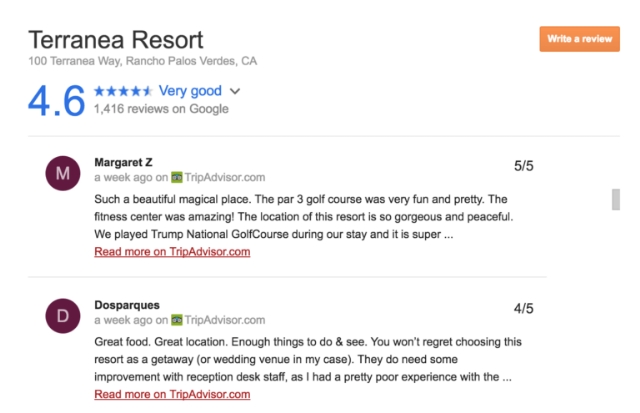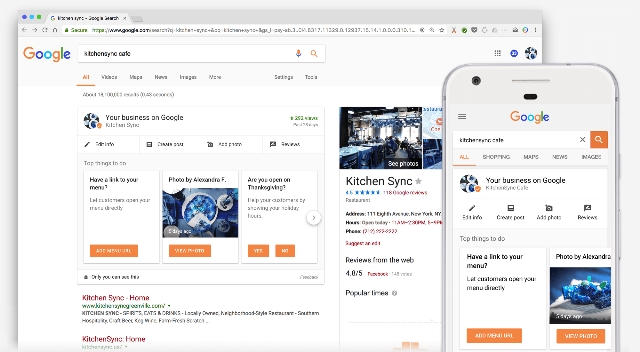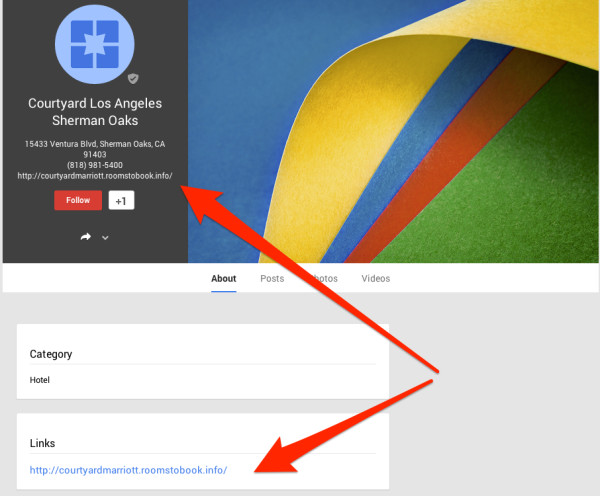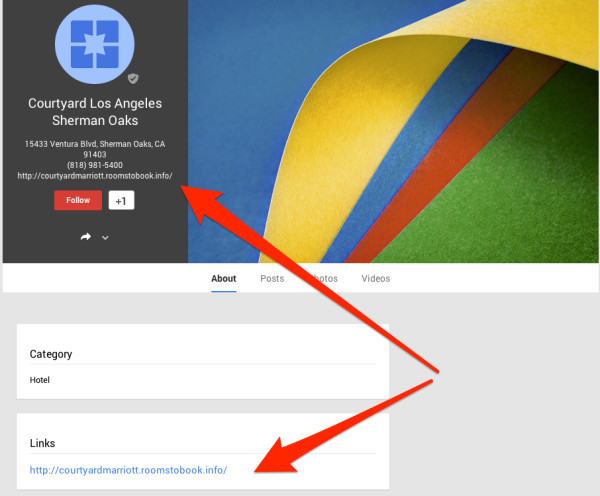A new case study from SEO researcher Joy Hawkins at Sterling Sky seems to finally debunk a myth that has lingered around Google reviews – that keyword-rich reviews could help a site’s ranking in search results.
The idea does make a certain amount of sense. Reviews can help spotlight specialties or unique services that companies offer and could provide a valuable signal to determine the most relevant results for specific searches.
Based on their findings, however, Sterling Sky says having customers put] keywords into local reviews on a business listing “does not improve rankings.”
It is important to note that the test is definitely limited.
For the study, the team gradually added product ratings including the phrases “fresh cut Christmas trees” and “Christmas trees” for a small Christmas tree seller with minimal online presence, rankings, or SEO efforts.
The Results
Sterling Sky says that the new keyword-rich reviews did not improve the company’s keyword rankings, even after six months.
The graphics below illustrate that the rankings did not improve for either keyword. In the case of the first phrase, rankings actually got worse by the end of the study, while rankings for the second keyword phrase remained approximately the same.
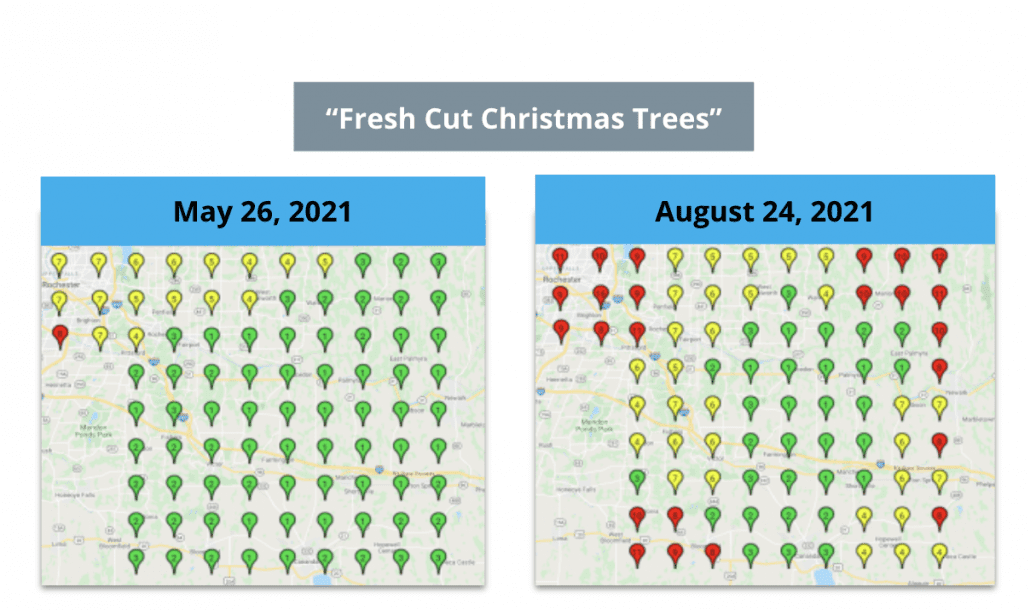
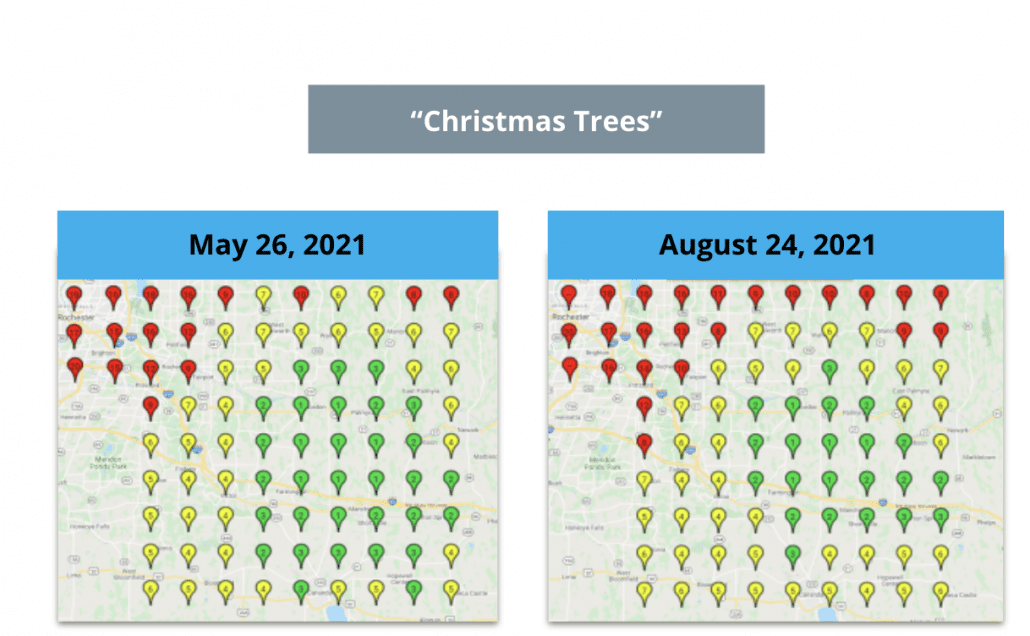
Hawkins concludes that there is no need for brands “to include certain words in their reviews.”
“First of all, this is hard to do and you often come across as weird or odd. And secondly, and most importantly, this case study shows that it does not improve rankings!
At the end of the day, Google probably focuses more on contextual information within reviews to help rank local businesses, rather than looking for exact keyword matches. Not only is this harder to abuse, it provides a more rich and more detailed understanding of a local business listing than a single keyword.

